The massive earthquakes that struck Turkey on February 6 have again upended the lives of Syrian refugees, which after 12 years of living in Turkey are no closer to finding a durable solution to their displacement. For some time, the refugees have faced local resentment and an economy beset by inflation and crisis. Now, half of Turkey’s 3.5 million Syrian refugees are living in a region with destroyed buildings, hospitals, roads, airports, and factories, not to mention the trauma brought on by tens of thousands of lost lives, leaving them more vulnerable than ever.
The earthquakes have roused an outpouring of national and international assistance in support of rescue and recovery efforts. However, soon attention will have to shift to the reconstruction of a region that houses more than 13 million people and generates almost 10% of Turkey’s GDP and 9% of its exports. Integrating the refugees into plans for regional reconstruction will be vitally important. For once, there is a readily available, concrete policy proposal for donor engagement with Turkey to achieve such a goal.
A recent United Nations Development Program (UNDP) brief advanced the idea of a Türkiye Compact, proposing that Canada, the European Union, and the United States extend trade concessions to Turkey, enabling private businesses to expand their exports and in return create formal and sustainable employment for both Syrian refugees and locals. If implemented, the Türkiye Compact would be a victory for all parties involved. It would reduce Syrian refugees’ dependence on humanitarian assistance, help alleviate public resentment, and diminish the prospects of secondary movements. Most importantly, it could become an organic part of regional reconstruction efforts. Beyond Turkey, it offers a template for other low- and middle-income countries that together host 74% of the world’s 32.5 million refugees.
The origins of the Türkiye Compact
Trade facilitation is an innovative idea that emerged in response to the 2015 European migration crisis when a million mostly Syrian refugees walked to Europe. The crisis revealed the extent to which the traditional refugee-response system — finding durable solutions to forced displacement through local integration, resettlement, and repatriation — is broken. An ever-growing number of refugees now find themselves in protracted situations with limited hope for a durable solution. Thus, the focus of the international community is shifting to harnessing the potential contribution of refugees to the development of their host communities.
This broken picture triggered a diplomatic quest for solutions that culminated in the U.N. Summit on Refugees and Migrants in September 2016. After long consultations with a wide range of stakeholders, the summit put forth the Global Compact on Refugees (GCR), adopted in December 2018, with proposals for improved protection for refugees and responsibility sharing with countries hosting large numbers of refugees. In particular, the GCR calls on the signatories to “promote economic opportunities, decent work, job creation and entrepreneurship programmes for host community members and refugees.” A growing body of research shows that proper employment prospects and a welcoming business environment for refugees contribute to economic growth and promote social cohesion in host countries.
Specifically, to incentivize demand for refugee labor the GCR advocates for “preferential trade arrangements … especially for goods and sectors with high refugee participation” with the countries hosting large numbers of refugees. This approach embraces the notion that trade liberalization through the reduction of tariffs, the easing or even full elimination of quotas, and the resolution of regulatory obstacles is a key driver of economic growth and employment. The policy was first operationalized through the EU-Jordan Compact. In exchange for the EU granting Jordan facilitated access to its markets, particularly for textile products, Amman committed to the issuance of work permits to Syrian refugees employed by Jordanian companies. The expectation was that companies would seek to employ refugees to benefit from liberalized access to European export markets.
Why a Türkiye Compact?
Syrian refugees live under a temporary protection regime; accordingly, they enjoy free access to basic Turkish public services including education and healthcare. Additionally, international assistance coordinated between the government, the U.N.’s Regional Refugee and Resilience Plan (3RP), and the EU Facility for Refugees in Turkey (FRIT) tries to meet their basic needs. The Emergency Social Safety Net and Conditional Cash Transfers for Education programs funded under FRIT provide financial support to eligible refugee households. However, these programs do not cover all refugees and fail to meet all household expenses. Hence, between 800,000 and 1.1 million Syrians work informally in Turkey under precarious conditions while only one-quarter hold regular jobs.
In recent years, there have been concerted efforts to enable refugees in Turkey access to sustainable livelihood opportunities. These have ranged from language and vocational training, actual job placements, and support for local livelihood and employment institutions to subsidizing businesses prepared to formally employ refugees. From 2017-2024, these programs, according to a 2022 feasibility study by the UNDP, will have generated an estimated 66,000 new jobs. This figure, however, falls significantly short of meeting the needs of the not less than 487,000 Syrians highlighted by a 2019 3RP report.
Over the past 12 years, Turkey’s initially-welcoming climate and solidarity with Syria’s refugees have eroded, while resentment and public tension have increased. The percentage of Turkish citizens demanding that the refugees be returned grew from less than 49% in 2017 to 82% in 2021. The refugees’ presence has become politicized, especially with Turkey’s approaching national elections and the worst economic crunch since the current government came to power in 2002. The damage caused by the earthquakes is aggravating the sense of antagonism as anti-refugee narratives flood social media.
At the same time, Syrian refugees are gradually settling. According to the Syrians Barometer, the percentage of Syrian refugees who said that they would not return to Syria under any circumstances rose from about 17% in 2017 to almost 78% in 2020 before falling to nearly 61% in 2021. As insecure as life in Turkey may be, Syrians have rebuilt their lives there. Nearly 800,000 Syrian babies have been born since the refugees arrived in 2011, and a similar number is currently enrolled in the Turkish education system. Due to heightened social tensions, however, the number of Syrians who are considering moving to third countries if the opportunity arises has steadily grown from 34.1% in 2019 to 55% in 2021.
Employment is widely recognized as a powerful driver of integration and social cohesion, and the Turkish government has even acknowledged this. While both the government and the opposition have advocated for the refugees’ return ahead of the upcoming elections, there is also a quiet recognition that, short of coercive measures, this is not a realistic policy. The earthquakes have made the prospect of return even less likely. In these circumstances, the Türkiye Compact offers a constructive way out.
How would the Türkiye Compact work?
The UNDP’s Türkiye Compact proposal advocates for Canada, the EU, and the United States to extend trade concessions to Turkey to incentivize businesses in the agricultural, processed food, and textile-garment sectors to provide mandated and sustainable employment for both Syrian refugees and locals. These sectors are not only labor intensive but Turkish businesses enjoy a competitive edge in global markets. However, in the case of trade with the EU, Turkish exports of fresh and processed agricultural products (unlike industrial goods) are subject to customs duties and quotas. Turkish textile products and garments also face U.S. and Canadian trade restrictions. These regulations undermine Turkish companies’ competitiveness in these markets and hence their capacity to create jobs.
If full trade concessions are extended to Turkish products in these sectors, a UNDP feasibility study found that Turkish exports would expand by $7.8 billion in 2025, creating almost 284,000 new jobs. If a quota of 20% is introduced for each workplace, this number would include 57,000 Syrian refugees. An estimated additional 52,000 jobs would result from secondary production and consumption, which would be accompanied by significant increases in taxes and social security revenues. All in all, the Türkiye Compact would, directly and indirectly, contribute an additional 0.82% to Turkey’s overall GDP. This is a notable amount considering that the damage caused by the earthquake is expected to set back Turkey’s GDP by approximately 2%.
Integrate the Türkiye Compact into post-earthquake reconstruction
The earthquake has destroyed many Turkish and Syrian lives, homes, and livelihoods. The outpouring of assistance for rescue and recovery efforts has been remarkable and soon both national and international stakeholders will turn to reconstruction. Implementing the Türkiye Compact is not without its challenges, but an opportunity exists to make it part of plans to rebuild the region. Moving forward, it will be important for Canada, the EU, and the United States, in coordination with international agencies, to start exploring the compact’s adoption. The policy would not only critically boost the regional economy but also help improve refugees’ self-reliance and host communities’ resilience. This would not only contribute to greater social cohesion but also reduce the likelihood of refugee secondary movements and the need to raise funds for humanitarian assistance. Finally, it would constitute a concrete example of how the burden sharing depicted in the Global Compact on Refugees can be implemented in a unique and constructive manner.
The Brookings Institution is committed to quality, independence, and impact.
We are supported by a diverse array of funders. In line with our values and policies, each Brookings publication represents the sole views of its author(s).
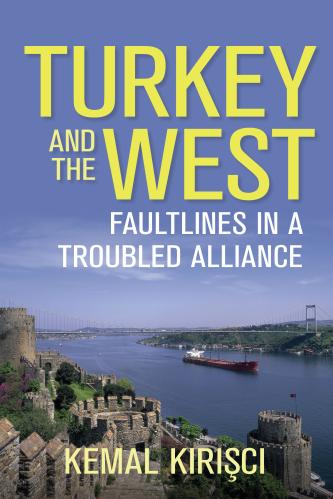
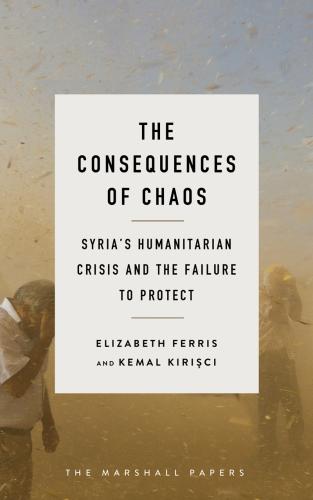
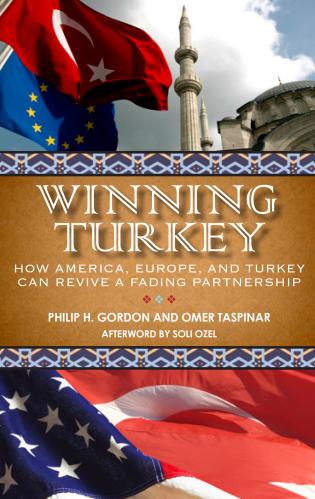
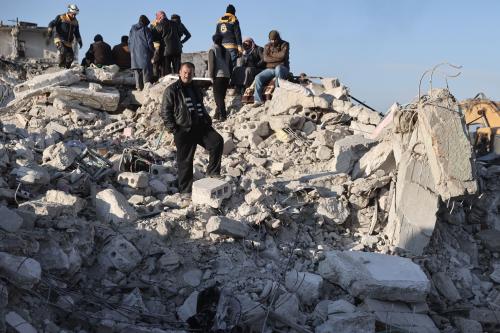
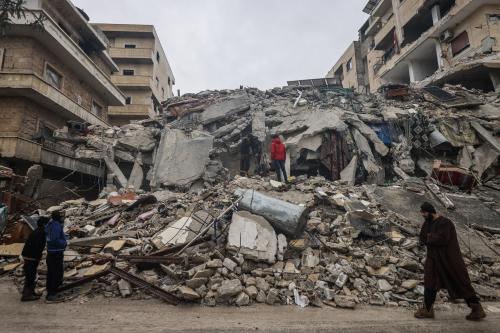
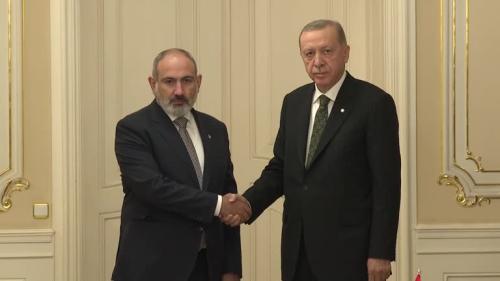

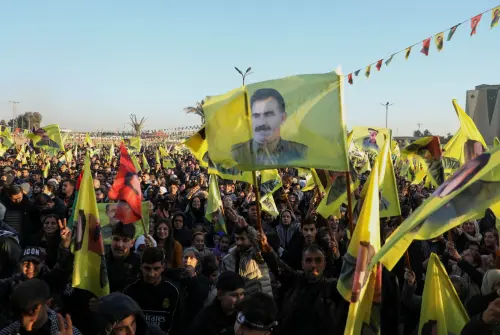
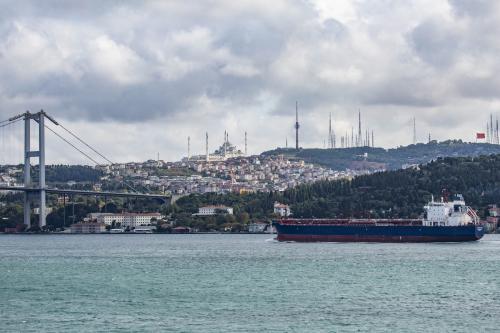
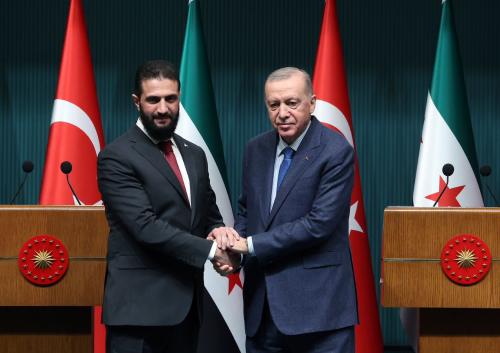
Commentary
After the earthquake: Refugees should be included in Turkey’s reconstruction
February 16, 2023